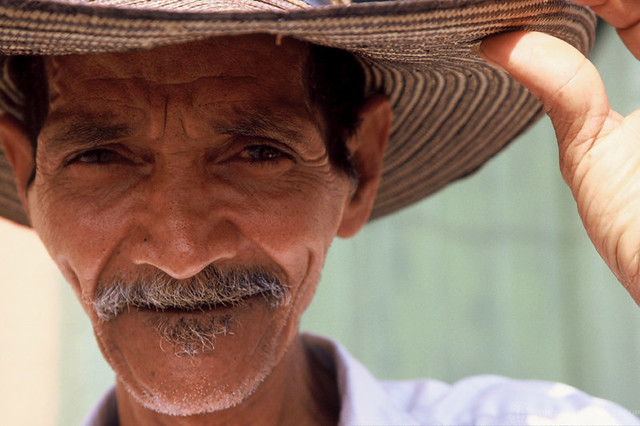The main goal of the World Bank’s work in the Eastern Caribbean is to help countries boost economic growth and competitiveness as they bounce back from multiple crises, focus on their development goals for the near future, and strengthen their ability to withstand climate change and other external challenges.
Strengthened Resilience to Climate Change and Other Shocks
Enhancing resilience to climate change and economic shocks is crucial, particularly in preserving marine and coastal ecosystems, fundamental for economic activities and development in the Eastern Caribbean.
A regional initiative for the blue economy aims to foster sustainable growth in tourism, fisheries, and aquaculture, significantly impacted by the COVID-19 pandemic, especially affecting marginalized groups like women and youth.
The World Bank will pursue strategies to aid sectoral revival and resource protection, including policy enhancement, innovative financing, and strategic infrastructure investments.
Additionally, to address escalating debt levels in OECS countries, the Bank will support fiscal responsibility frameworks and improve State-Owned Enterprises' performance. Funding initiatives like the Unleashing the Blue Economy of the Caribbean Project and the PROBLUE Multi Donor Trust Fund further bolster sustainable resource management and economic recovery efforts in the region.
Improved Human Capital seeks to strengthen the health and skills of the population for greater productivity and prosperity and improve financial protection for the vulnerable
Ongoing Investment Project Financing (IPF) support in Saint Lucia and St. Vincent and the Grenadines aims to expand cash transfer programs for the poor and enhance human resource capacity for social protection services. The World Bank intends to improve beneficiary eligibility tools in Saint Lucia and boost the efficiency of social protection systems in other OECS countries. COVID-19 Recovery Development Policy Operations (DPOs) reinforced income support programs, emphasizing gender-specific needs and inclusivity during crises.
Bank-financed projects in Saint Lucia and St. Vincent and the Grenadines aim to tackle challenges in productivity growth and poverty reduction through various measures. These include strengthening Technical and Vocational Education and Training (TVET) systems, utilizing labor market data to shape training and policies, offering direct TVET training for low-income individuals, establishing financial aid programs for disadvantaged students, and enhancing the overall learning environment for TVET education. These initiatives are designed to improve skills, increase employment opportunities, and alleviate poverty in the region.
The World Bank offers technical assistance and investments to bolster institutional capacity and policy frameworks for sustainable TVET and labor markets. These efforts aim to reduce gender inequality in economic opportunities by addressing education and training gaps.
Saint Lucia's Sustainable Recovery Development Policy Credit, approved in January 2024, aims to enhance fiscal management, climate change resilience, and the business environment. The $40 million investment will boost sustainable development, increase revenue, and enhance resilience against future shocks.
Support the availability of more and better jobs by enhancing the enabling environment for business, and increasing digital and physical connectivity for greater innovation, efficiency, and competitiveness.
To bolster job creation and enhance business environments, the Bank collaborates with OECS countries to address challenges faced by Small and Medium Enterprises (SMEs), which contribute significantly to the region's employment and GDP but encounter limited access to financing. Through a partial credit guarantee scheme, the Bank reduces lending risks for SMEs.
The World Bank also supports the blue economy program, offering matching grants to boost SME productivity and capabilities in sectors such as tourism and fisheries, with a focus on expanding women-owned businesses and providing climate risk insurance. Essential advisory services aim to advance financial reforms, including modernizing payment systems and promoting digital solutions for SMEs, while efforts to reduce gender inequality include advocating for women's participation in digital skills courses and entrepreneurship programs.
The OECS Skills and Innovation Project, approved in January 2024, will allocate $36 million to Grenada, Saint Lucia, and the OECS Commission to enhance youth transversal and advanced technical skills, strengthen regional collaboration in post-secondary education, and foster collaborative innovation. Over the next five years, it will benefit over 40,000 youth and at least 120 entrepreneurs and firms in the OECS region.
Support for Health Systems
In the OECS Regional Health Project, Dominica, Grenada, Saint Lucia and St. Vincent and the Grenadines are making progress toward improving preparedness capacities of health systems for public health emergencies, and providing a response in the event of eligible crises or emergencies. These countries are working to bolster their health infrastructure resilience through the SMARTing of health facilities.
The Saint Vincent and the Grenadines Strengthening Health System Resilience Project is a transformative investment. At its core is the construction of a SMART, green, and climate resilient acute care hospital. With this as the catalyst for sector reform, the government is aiming to tackle comprehensive aspects of resilience including the ability of the health sector to manage shocks, the adaptability of health services to provide high quality care during and after crises, the maintenance of core functions during devastating climate and natural disasters and other emergencies, the absorption capacity of the hospital to efficiently manage additional resources, and increasing the sector's ability to respond to crises as well as to the rising burden of chronic non-communicable diseases (NCDs).
Saint Lucia's healthcare transformation towards Universal Health Coverage (UHC) is progressing under the World Bank-financed Saint Lucia Health System Strengthening Project. The project focuses on a primary care-driven UHC agenda, with a Performance-Based Pilot scheme to strengthen NCD care management and outcomes. The Bank supports the government with the institutionalization of the pilot and accelerating digital transformation in health to strengthen service delivery and the gradual shift to output-based payments. The pilot has benefited from technical assistance provided by the Korea-World Bank Partnership Facility (KWPF)who contributed to the design of the pilot, focusing on supporting the quality-of-care agenda for hypertension and diabetes; designing a scalable and sustainable scheme, drawing on lessons from Korea, Argentina, Colombia and other countries, including supporting the alignment of the PBF scheme with public finance management systems and processes; and, setting up an operational evaluation design for the pilot to inform implementation.
With funding from the Global Partnership for Education, the System Capacity Grant for Education Sector Plans, Enabling Factors Analysis, and Partnership Compacts in the OECS is supporting regional collaboration in education in Dominica, Saint Vincent and the Grenadines, Grenada and Saint Lucia. Ministries of Education receive technical assistance to identify a priority reform with the potential to catalyze system wide change for education systems and develop a roadmap to implement it.



